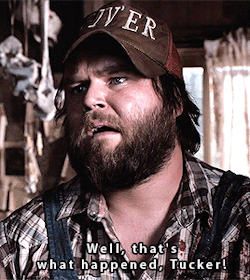@surreality Well, yeah, a good GM doesn't go:
"You went to go break up the mugging outside of the bar and he was hiding a sawed-off shotgun in his pocket ROLL INITIATIVE, FUCK YOU YOU DIE."
I always like to approach GMing as finding ways to feed entertainment to the players. Entertainment isn't always this huge degree of risk. Risk ebbs, flows, and doesn't always involve death. One of my favorite playbook options is to avoid a TPK (total party kill) if group combat goes bad and have them wake up in a cell, or in a strange hotel room, or somewhere else. It's like playing with a beach ball. Keep it in the air as much as you can, but let them be prepared for the risks when they decide that it's time to strap up with weapons and take on a hive of vampires. Even then...being captured is an option.
@faraday I'm not disagreeing with you. I'm not. Where my head is at in this discussion is that "people that enjoy the dice/rpg style of risk with xp who view the dice-assisted risk experience to be thrilling because the outcomes are not predetermined or railroaded, up to and including character death" don't necessarily mesh well with "people who want to tell a story and want to control the risk via story intention, but ultimately be in control of the outcome."
You're right, there are equally valid styles of play.
It's just that when you have one population of people who believe that the game is about risk, character sheets, and dice rolls, and another population of people who believe that the game is about what they decide the outcomes to be, then stuff gets awkward.
One crowd won't agree with the "never rolls dice" crowd deserves the rewards.
The other crowd doesn't want their characters or story risked to dice rolls, and doesn't want to be forced to do so to move the story along.
So my point is: Figure how it's going to work going in, make it clear to your players what kind of game it is, and draw in your target audience. Don't leave it vague. Put it in the "news" or "policy" articles. Just...whatever you do, don't let the players figure out what kind of game it is after they've become invested in it.
Edit: And it is probably very obvious, at this point, which style of play I think balances fairness across the playerbase. Dice tend to put everyone on the same, weighable odds. The more free-form approach, which I prefer in certain kinds of settings (but not all), runs a greater degree of risk in terms of dispute/story resolution turning into a nightmare where you need to find out what everyone wants on the pizza, who doesn't get their favorite topping, who does, and who gets stuck eating the crappy salad.




